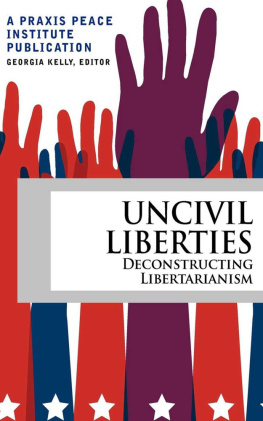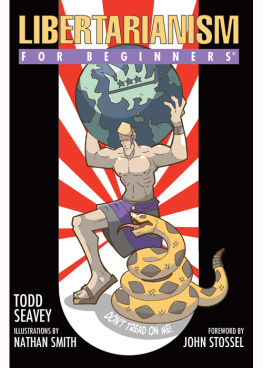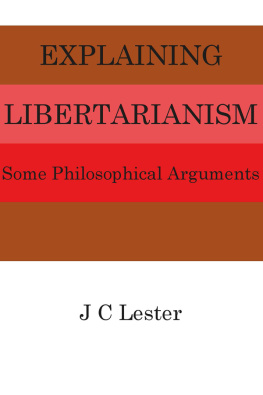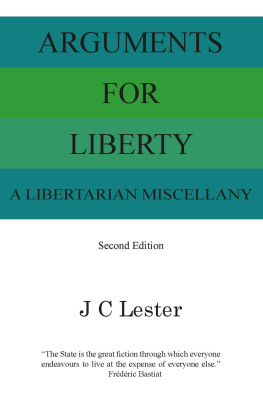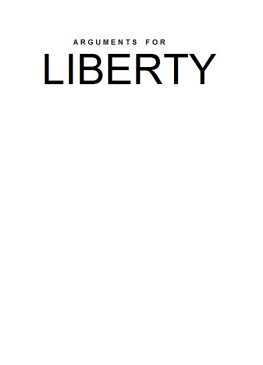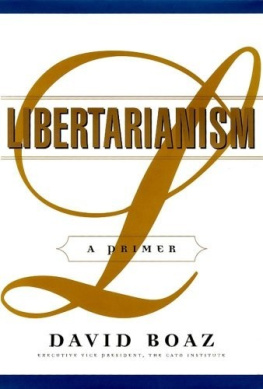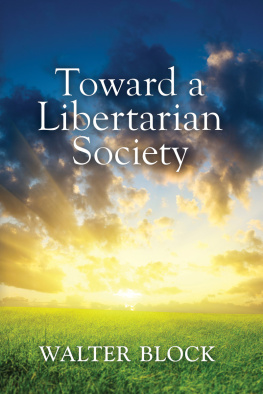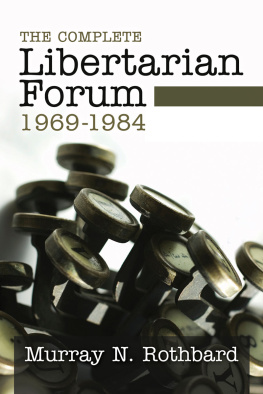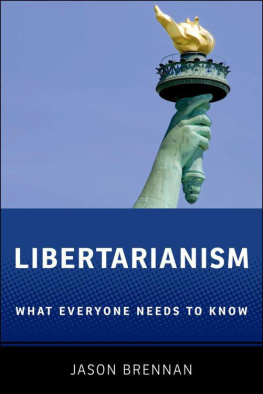Uncivil Liberties
Deconstructing Libertarianism
Uncivil Liberties
Deconstructing Libertarianism
GEORGIA KELLY
Co-Author and Editor
BEN BOYCE, BENJAMIN NICK COLBY, GUS DiZEREGA, JULIANNE E. MAURSETH, and BARRY SPECTOR
Co-Authors
Foreword by Hazel Henderson
PRAXIS PEACE INSTITUTE
Sonoma & New York
Uncivil Liberties: Deconstructing Libertarianism. Copyright 2013 by Praxis Peace Institute. Foreword copyright 2013 by Hazel Henderson. Published by Praxis Peace Institute in 2013.
All rights reserved. No part of this book may be reproduced or transmitted in any form or by any means, electronic or mechanical, including photocopying, recording, scanning, or by any information storage and retrieval system without written permission from the publisher.
Text design by Maria E. Torres | helenpr66@gmail.com.
Cover design by www.popshopstudio.com.
Cover illustration istockphoto.com/ #21639298
ISBN: 978-0-98861-3-010
Ordering Information:
Cosimo publications are available at online bookstores. They may also be purchased for educational, business, or promotional use:
Bulk orders: Special discounts are available on bulk orders for reading groups, organizations, businesses, and others.
Custom-label orders: We offer selected books with your customized cover or logo of choice.
For more information, contact us at:
Praxis Peace Institute
P.O. Box 416, Old Chelsea Station
New York, NY 10011
praxis@cosimobooks.com
www.praxispeace.org
CONTENTS
CHAPTER 1
By Barry Spector
CHAPTER 2
By Georgia Kelly
CHAPTER 3
By Ben Boyce
CHAPTER 4
By Gus diZerega
CHAPTER 5
By Julianne E. Maurseth
CHAPTER 6
By Benjamin Nick Colby
ACKNOWLEDGMENTS
THIS PROJECT EMERGED from the Praxis Peace Institute Book Club and has been a wonderful collaboration from start to finish. As editor of this book and director of Praxis Peace Institute, I want to thank the authors, as they have donated time in researching and writing their respective chapters. It has been a labor of love filled with enthusiasm.
The authors (collectively) would like to thank people who helped with this effort from the earliest to the final stages. They are Philip Beard, Moira Brennan, Dan Drasin, Susan Fegan, Amy Petersen, and Dave Ransom, who proofed and edited some of the early copy for the pamphlet, Deconstructing Libertarianism, which was the precursor to this book. Thanks also to Tom McKean for putting the pieces together in the original pamphlet and to all the above for making sense of our process.
We must thank Foster and Kimberly Gamble, who created the film Thrive and its accompanying website, for motivating us to respond from a progressive perspective. Though we differ greatly in our solutions, we identify some of the same problems facing humanity today.
We would like to also acknowledge moral support from authors Duane Elgin, Elisabet Sahtouris, and John Robbins, who confirmed the necessity of responding to the Thrive film and website.
We are grateful to Swami Beyondananda (aka Steve Bhaerman) for coming up with our title, Uncivil Liberties, which captures the essence of our critique.
We also extend a special thanks to economist and author Hazel Henderson for supporting this endeavor from pamphlet to book and for suggesting our publisher, Cosimo Books. We are forever grateful to you. As editor, I appreciate the conversations and email exchanges we had during the writing of this book.
Other long-time supporters of and specific contributors to Praxis Peace Institute who made a publication like this possible are the Firedoll Foundation, the Appleby Foundation, Faye and Sandor Straus, Chandra and Robert Friese, David and Lila Tresemer, Howard and Jean Fenton, Joanie Misrak Ciardelli, Shaula Massena, and Donald M. Davis. We deeply appreciate your support and belief in our work.
We would like to thank the staff at Cosimo Books, especially editor Katherine Mason, who have contributed to the manifestation of this book with enthusiasm, attention to detail, and continual helpfulness. As it turns out, Praxis Peace Institute already had a connection with Cosimo. In the summer of 2007, Cosimos founder and publisher, Alex Dake, attended a Praxis conference in Dubrovnik, Croatia. So working together to publish this book has been a warm and welcome reunion. Our deepest appreciation goes to Alex for understanding and encouraging our project from the first meeting.
Georgia Kelly
Director, Praxis Peace Institute
FOREWORD
I WELCOME UNCIVIL LIBERTIES as a sobering wake-up call to my beloved adopted country, the USA, and its people. We are, I believe, in the midst of a whole-system global transition from the past 300 years of fossil-fueled industrialism and expansion to the biological and ecological realities of our finite planet. These realities include accepting that we humans are one among thirty million other species inhabiting our biosphere and all exist and thrive on the daily flow of free photons from our Mother Star: the Sun. Indeed, we at Ethical Markets Media, which I founded in 2004 to reform markets and metrics while growing cleaner, greener, knowledge-rich economies, address these biological realities in Transforming Finance Based on Ethics and Lifes Principles, a paper co-developed with our partners at the Biomimicry Institute.
This great global transition now underway signals the end of GDP-measured industrial expansion and illustrates the errors at the core of economics that permitted this single-minded focus on maximizing private profit by externalizing social and environmental costs to others. All these false ideologies were de-frocked in the financial crises of 2008 and the bailouts of their perpetrators.
The authors of Uncivil Liberties de-mystify the social and cultural myths and religious beliefs that underpin the still prevailing economic fundamentalism that drove corporate executives, Wall Street traders, central bankers, and compliant politicians into denial. Their efforts led them to further inflate un-repayable levels of debt by giving printed money to insolvent too-big-to-fail corporations. They were abetted by the Supreme Courts 2010 decision that these legal abstractions, originally chartered by governments for the public good, were freed from such obligations since they were defined as persons with the full rights of citizens, but with fewer obligations and limited liability.
This book and the deeply insightful perspectives of its co-authors help us understand how all these travesties could have happened and why they are still occurring. In examining the premises of libertarianism and its deep roots in the history and culture of the polarized but still united States of America, they plumb the deepest conflicts in all human societies: the individual versus the group. We learn how the myths of the frontier, the rugged individuals celebrated by the Horatio Alger and Ayn Rand stories, came to dominate our politics and economyreinforced by commercial advertising and peer pressure to keep up with the Joneses. As corporate money captured politicians, it channeled aspirations away from service for the common good to heroic feats of consumption. I explored the psychology and resulting personal anxieties of all this in my article titled The End of Jonesism (The Futurist, 1975).
I became a U.S. citizen in 1961 and at first was entranced by this cult of individualismso different from my upbringing in Britain where group and community bonds still predominate. I read Ayn Rands novels and identified with her hero John Galt, sympathizing with her obvious over-reaction to life under the Soviet Unions totalitarianism. I also understand her appeal to adolescents and mostly males of all ages, from hedge fund and private-equity players to former Fed Chairman Alan Greenspan and recent vice-presidential candidate Paul Ryan, both of whom are devotees.
Next page
